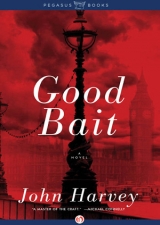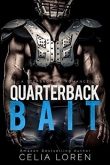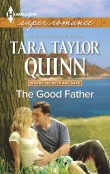
Текст книги "Good Bait"
Автор книги: John Harvey
Жанр:
Триллеры
сообщить о нарушении
Текущая страница: 3 (всего у книги 19 страниц)
7
Karen still couldn’t quite figure Tim Costello out. He’d been in her team for some nine months, detective sergeant down from CID in Leeds, where he’d been part of the Major Crime Unit for three years. Promotion overdue. Before that he’d studied for a degree in Criminology and Forensic Science at the John Moores University in Liverpool, his home city. Not that you could tell that from his accent, with which he could have read the Radio 4 news without causing a flutter. Nicely brought up, Karen thought. His mother probably had him scurrying off to elocution lessons from the age of six or seven.
Costello’s mother was Chinese, his father Irish. He’d inherited his father’s height and build, all elbows and sharp angles, and his mother’s features. His father’s father had migrated to Liverpool to work on the docks, back when such work was plentiful and the scratchings in County Galway were poor; his mother’s mother had come as a mail-order bride on a ship from Hong Kong. How his parents had met was a story still to be told.
Where Karen was concerned, he was suitably deferential; in his dealings with the other members of the team, including Ramsden, he was inclined to be a little cocky. A little too sure of himself, Ramsden reckoned, a bit too much mouth. Karen wasn’t so certain. Give him his chance, she thought, to come to terms, settle down – that happened and he might just blossom, come into his own.
Already had where transport was concerned. Cycled in from home, early hours, on a bike with a carbon-fibre frame and Shimano Deraillieur gears that cost, as Ramsden liked to say, more than his first fucking car. Home for Costello being a flat on the Hackney-Dalston borders he shared with a girlfriend none of them had yet seen.
Lycra padded cycling shorts, black tights and brightly coloured long-sleeved jerseys, headphones clamped to his ears listening to a menagerie of bands like Foals and The Geese, to say that he and Mike Ramsden were several lifestyles apart would be no exaggeration. Karen would like to have considered herself midway between, but she wasn’t sure of that either. Sometimes conversations with Costello beyond police work made her feel as if she were taking classes in how another world lives and failing.
Back in the dead days following New Year and their discovery of Petru Andronic’s identity, the temperatures low, the skies intent on giving new meanings to the word grey, there’d been a glimmer of a breakthrough in the Walthamstow shooting. The bullets taken from the dead youth’s body had been linked to a haul of illegally imported arms and ammunition seized during a raid by officers from the Central Task Force on a warehouse in Deptford. While those officers continued to probe into the identities of those who had both imported the arms and sold them on, Tim Costello was liaising with members of the Met’s Forensic Intelligence Team to trace a possible pattern from other shootings in which guns and ammo from the warehouse had been used.
As for the Wood Green stabbing, it was still a case of speculation and blame. The victim, a youth of fifteen, Derroll Palmer, had no known gang connections, but both of the young men previously arrested and then grudgingly released were members of the Bruce Castle Kings, one of the sets of the Tottenham Mandem gang, and were known to Operation Trident; both had records for minor crime, including assault, yet their alibis had been difficult to break down. One youth had admitted under questioning to being present at the scene, an admission almost immediately withdrawn, his solicitor asserting that the statement had been coerced in an atmosphere of fear and intimidation.
Tell that to the kid laying dead, Karen thought, killed for speaking up when another youth had called his girlfriend, whom he was walking home, a skanky whore.
And of Wayne Simon, missing since the Holloway murders, there was still no clear sign. A possible sighting in Gateshead, nothing more. If the reports were right, farther and farther north. Soon, Karen thought, he’d run out of ground.
She was busy finagling her responses to the latest set of quarterly crime figures that had filtered down from on high, when Ramsden knocked on her door and breezed through.
Sod’s law, a SIM card been found in the last but one bag of gubbins from the Andronic crime scene to be methodically searched, sorted and labelled; missed on a first, preliminary sortie, it had been buried inside a sodden wedge of shredded newspaper, along with rotting sweet wrappers, flattened cigarette butts, a smear of dog shit and a toddler’s missing sock. The original location was noted as the undergrowth to the eastern edge of the pond.
‘We know it’s his? Andronic’s?’
‘Not exactly.’
‘Meaning?’
‘Sent through to Telecommunications Intel. Couple of days back.’
‘And?’
‘Pay as you go.’
Karen shook her head. The problems with pay as you go from her point of view were legion: little or nothing was straightforward, cash sales and so no bills, to say nothing of the possibility of bogus names, bogus addresses, trails that could easily become meaningless when tracing owners. T. Rex now living in Nirvana. Bollocks like that.
‘Any luck,’ she asked, ‘with the registration?’
Ramdsen grinned. ‘Radu Rebeja. Some trumped-up London address.’
‘What’s so funny?’
‘Google him, the guy from Intel said, laughing up his sleeve. Radu Rebeja, the most capped soccer player in Moldovan history. Played most of his career for FC Moscow. Currently Vice President of the Football Association of Moldova. Resident of Chisnau.’
‘Probably not his phone, then?’
‘No. But Andronic aside, how many other Moldovan soccer fans do we think might have been on Hampstead Heath that night, that exact location?’
‘There’s a record of calls?’
‘Intel still working on it. No promises when, snowed under, the usual. So, you know, don’t-’
‘Don’t hold my breath.’
It could lead somewhere, Karen thought, or it could send them up a zillion blind alleys. Too much information sometimes as defeating as too little. She forced herself to concentrate on her paperwork, one eye on the clock, one ear cocked towards the phone, which failed to ring. By the end of the day, there was nothing further about the SIM card, either way.
It was dark out, had been for the best part of three hours already, the false dark you find in big cities; everything shot through with shop lights, car lights, clouds like a stage set, painted on, the sky an unreal blue, like day for night, the horizon washed in an unreal orange glow.
On a whim she stopped off at Ottolenghi on the way home and picked up a portion of roast chicken with chilli and basil, another of mushrooms with cinnamon, and some pear and cranberry upside-down cake for dessert. Treat yourself, girl, and to hell with the expense.
Back at the flat, she poured herself a generous glass of wine, arranged the food on a tray and settled down to watch one of the Swedish Wallandersshe’d recorded from BBC4. Angst and murder on the shores of the Baltic. As long as she could divorce it from reality, her reality – and here the subtitles really helped – she could enjoy the somewhat ramshackle way in which the Ystad police were able, week in week out, to wrap up a case within a mere ninety minutes. And her feelings about Wallander himself, or, rather, the actor who played him, Krister Henriksson, had gone from sheer exasperation – as head of a murder squad he could be about as organised as a sack of kittens – to a resigned pleasure in the way he moved from anger and confusion towards a kind of resolution.
Except where his love life was concerned.
There, she knew how he felt.
A night’s clubbing, a fit body, a good-looking face in a crowded bar, the slip and slither that moved from the dance floor to the taxi to the final fuck, slow and generous or quick and hard, that was no longer enough. As if, since she’d been in her teens and early twenties, it ever really was.
She pushed away the tray, drank down the last of the glass, switched off the TV. Stood at the window for a few moments, staring out. Saw her own reflection imprinted on a terrace of houses opposite, the darkened tree line that marked the edge of Highbury Fields. Along the street, a quick flicker of light from the interior of a parked car illuminated, for the briefest of moments, the shape of a man hunched behind the wheel.
All day now, all through the evening, the scenes which showed Wallander trying with some desperation to bridge the gulf between himself and his grown-up daughter – trying and failing – she had fought to keep her own father at bay. His birthday – late January – little more than a week away. Seventy-three. Seventy-three he would have been had he lived. The car outside, headlights burning, pulled slowly away from the kerb and passed from sight. He had been running, her father, across the street towards where a group of teenage boys was hassling a single, frightened girl. The boys white, the girl light-skinned, mixed race. Jostling, pushing, grabbing, calling names. The girl, her face besmirched with tears, stumbling to her knees and Karen’s father, with a roar of righteous anger, rushing out towards her, towards the surrounding youths, unable, in his haste, to see or hear the van that swung, at that moment, around and into the road, accelerating hard.
Her father’s body, as she had never seen it, other than in her imagination, lifted – hurled – into the startled emptiness of the night air, only to fall, broken, torn, by the pavement’s edge.
Three days in hospital he lived on, unconscious, sustained by drips and tubes and prayer. Her mother scarcely left his bedside till there was only prayer left and then he died.
Karen came and went, just thirteen and unable to withstand the pain.
Her father dead, her mother had gone back to Jamaica. Unlike her sister, Lynette, who had agreed to go, only to return three years later, Karen had dug in her heels, refused. Not wanting to leave her school, her friends. Already close, her aunt and uncle agreed to take her in. Now, they too, distressed by a city that was no longer, in their eyes, the same place where they had chosen to live most of their adult lives, were back in Spanish Town, retired, resigned.
Karen pulled the curtains closed.
Her father’s face flickered like a passing light, then disappeared.
‘Cry, Baby, Cry’ and then ‘Good Night’, from Ramsey Lewis’s version of the Beatles’ White Album, piano and strings, accompanied Karen as she removed her make-up and undressed for bed. After just three pages, the book she was reading slipped from her hands and she was asleep.
8
Morning. Cold. Overcast. Upper Street and St Paul’s Road at a standstill, cars stacked up in both directions. Karen’s mobile rang just as she reached the counter in Caffe Nero. Juggling coins and loyalty card, she flipped open the phone as she gave her order.
‘Sorry,’ said the voice in her ear, ‘no lattes here. Must be a wrong number.’ The suggestion of a Midlands accent. Wolverhampton, West Bromwich. She guessed the man from Telecommunications Intel.
‘You’ve got something for me?’
‘Sugar? A sprinkling of chocolate?’
‘Information?’
‘A brand new SIM card, only five calls. Three to a Lesley Tabor, that’s Lesley with an E-Y, T-Mobile. Other two to an Orange phone registered to an Ion Milescu – I-O-N, Ion – Milescu, M-I–L-E-S-C-U. All the details in an email. On its way.’
‘Thanks. I owe you.’
‘Double espresso. Two sugars.’
‘Deal.’
By the time both addresses had been traced and verified, Mike Ramsden was on his way to Wood Green to check out a possible break in the investigation into the Derroll Palmer murder. A fresh poster campaign and some door-to-door leafleting had jogged the memory of a night cleaner who’d been making her way into work when the stabbing had occurred and she’d contacted her local station. Now it was a question of teasing out the details of what the woman had seen and heard, Ramsden only too aware of the need to proceed with caution. Push too hard and the danger is the witness becomes confused – either that or gives the answers he or she feels are wanted, only to falter later under crossexamination.
Karen picked up the phone. ‘Tim, a minute?’
He was wearing a loose-fitting casual jacket over a muddy green V-necked T-shirt, slim-line black trousers and blue-black suede shoes with a rubber sole.
Karen allowed herself a smile. Elvis and the Beatles in one.
‘Fancy a break from arms and ammo?’
‘Please.’
She brought him up to speed.
‘As far as we know, these were the last people he spoke to before he was killed. Just in case they know one another, I want them seen as close to the same time as possible. Less chance of either of them contacting the other. Concocting stories. Okay?’
Costello nodded.
‘I thought you could take the girl.’
Which meant Costello heading south across the river to a large comprehensive in Catford. Alien territory though he didn’t intend it to show.
Behind a fascia of bare, stunted trees and tall railings, its main buildings a fortress of darkening brutalist concrete, the school, Costello thought, had all the welcoming aura of a Soviet labour camp from the last century. Even the first fractures of grey sky, a timid leavening of blue, didn’t do a lot to help.
The youth who met Costello at the gate was chirpy enough, however, if a little disappointed not to find an officer in uniform.
‘You sure you’re police?’
‘Sure.’
‘You don’t look like no police.’
Costello was quietly pleased.
‘So what?’ the youth asked. ‘You here to nick someone, or is gonna be another of them lectures on drugs and gangs and knives an’ keepin’ off cheap cider?’
The deputy head, uncertain whether to shake Costello’s hand or not, settled for some vague arm flapping and a sideways nod of the head and ushered him along to what looked to have formerly been an office, but was now a depository for some outmoded filing equipment and a convocation of broken chairs.
‘You’ll be able to talk quietly in here.’
He left the door ajar and reappeared a few minutes later with the sixteen-year-old Lesley Tabor at his side.
‘All right, Lesley …’
The door closed.
Costello smiled.
‘Lesley, I’m Detective Sergeant Costello. Tim.’
No reply. Slouch shouldered, mousy haired, a school uniform of white blouse, navy jumper, navy skirt, grey tights, the girl stared determinedly at the scuffed tops of her shoes.
‘Lesley?’
Her face angled up an inch.
‘You’re not in any trouble, you realise that, don’t you? This is not about anything you might have done. Okay?’
Another inch, a first sight of pale eyes.
‘I just need to ask a few questions, that’s all. A few quick questions, then I’m out of here. Never to be seen again.’ He lowered his face, swiftly, towards hers. ‘Think you’ll miss me? When I’m gone?’
She looked at him then. Miss him? What was he on?
He winked, face creasing into a grin.
‘What say we get out of here? Go for a walk in the palatial grounds? Take in some of that winter sun?’
‘We can’t …’
‘Come on …’ Reaching past her for the door. ‘What are they going to do? Arrest us?’
There were indeed a few vestiges of sun, just visible above the turrets of a tower block to the east. Sweet papers and food wrappings from break were scattered here and there on the ground around their feet where they slowly walked. Faces, curious, appeared at windows and then were called rapidly away, back to the pleasures of citizenship or ICT, considerations of the opposite angle to the hypotenuse or the importance of the slave trade to the rise of capitalism.
‘What are you missing?’ Costello asked.
She didn’t immediately seem to understand.
‘What lesson?’
‘Oh, history.’
‘I’m sorry.’
‘S’all right, it’s boring.’
History, how could it be? Wars, alliances, betrayals, dates, the movements of great powers, Costello had loved it.
‘What’s your favourite then?’
‘Um?’
‘Subject? Lesson?’
‘Dunno. English, maybe.’
She was frowning, squinting up her eyes. Last night’s eye shadow not renewed, not properly washed away. They had reached the railings alongside the gate and turned.
‘Tell me about Petru,’ Costello said.
She stopped. ‘Who?’
‘Petru. Your boyfriend. Petru Andronic.’
‘He’s not my boyfriend.’ A quick flush of embarrassment or anger.
‘You do know what happened to him?’
‘Course.’
She looked at the ground, looked away; wanted to be anywhere but where she was.
‘I’m sorry,’ Costello said. ‘For what did happen.’
She was still avoiding his eyes.
‘Had you known him for long?’
‘I didn’t. Not really.’ Her voice quiet, quieter. ‘Know him, I mean.’
He waited. Knew she’d either talk or walk away.
‘Look, he wasn’t my boyfriend, right? I only met him, like, a couple of times. It wasn’t, wasn’t like that, it …’
She faltered back into silence.
‘What was it like then?Your relationship?’
‘There wasn’t a relationship.’
‘Lesley, we need to know.’
‘Why?’
‘Because we’re trying to find out what happened. Who did that to him. I thought you’d want to help us.’
‘I can’t.’
‘Anything, anything you might tell us, it could help. Even if you don’t see how.’
‘But I told you …’
‘He wasn’t your boyfriend, yes, I know.’
‘So?’
‘So what was he?’
‘Oh, God …’ Swinging away.
‘Lesley, he phoned you, three times, the night he was killed.’
She started to walk, angling back towards the school, and he walked with her.
‘Why did he call so many times?’
‘Because he wanted to talk to her, that’s why.’
‘Her? Who’s her?’
She stopped again, faced him. ‘I can’t tell you.’
‘Just let me try to understand. He wanted to talk to somebody else, really wanted to talk to them, it was important – so why not call them, why call you?’
‘Because it was how …’ She bit down on an already jagged nail. ‘He wasn’t allowed to call her, right? Not any more. Not without … He’d call me first and I’d text her and then she’d call him. That was how it worked.’
Why? Costello asked himself and slipped the question to one side.
‘That night, then, that’s what you did? His girl? Sent a text?’
‘Yes.’
‘And did she contact him?’
‘No. That’s why he kept on. Where is she? Where is she? Tell her she’s got to ring me.’
‘And after the last time? The last time he called?’
‘I don’t know. I don’t think so, no.’
‘Do you know why? Had they fallen out? What?’
A ragged breath. ‘She was scared, wasn’t she?’
‘Of him?’
‘No, not of him.’
‘Then who?’
‘Her father, of course. Her sodding father.’
Muffled, inside the main building a bell was ringing; the rising distant sound of voices, people moving.
‘Lesley …’
‘What?’
‘Sooner or later, you’re going to have to tell me her name. You know that, don’t you?’
9
While Tim Costello was making himself familiar with the Borough of Lewisham, Karen’s destination was more upmarket: Kensington within spitting distance of Harrods, a small block of purpose-built flats away from the main road. The exterior was outfaced in off-white stone, curved windows with square panes that brought to Karen’s mind the deck of a ship, a liner, the kind that cruised people with too much money and time around the world’s oceans. Her uncle would talk of watching them come past the long sand spit of the Palisadoes and into Kingston harbour, all those white faces crowded along the rail, eager for the sanitised taste of another culture, the quick whiff of ganja and a frisson of danger.
The name Milescu was clear beside the entryphone.
Karen identified herself and was buzzed through.
Clare Milescu met her as she stepped out of the lift with a firm handshake and a ready, open smile. Close to fifty, Karen thought, and not disguising it, little need: trim, neat, and next to Karen herself, almost petite; short dark hair well cut, laced with grey. She was wearing a dark skirt and pale lavender blouse, black tights, red shoes. Her only accessory, watch aside, a wedding ring.
‘Please,’ she said. ‘Please come in.’
The door to the flat was open behind her.
There were photographs, black-and-white, arranged along both sides of the hall: family portraits, Karen thought, formal, informal, children in their best Sunday clothes, a picnic, an elderly man in a hospital bed.
The room they went into was like something from a magazine Karen might have thumbed through at the hairdresser’s. Low settees in muted colours at right angles to one another; blonde wood, glass and chrome; a lamp like an oversized pebble on the parquet floor. More photographs, mounted and framed. The paintwork the palest of violets, barely a colour at all. Someone with money and a certain taste.
A large window led out on to a balcony busy with plants that had survived, somehow, the winter frosts. A wide mirror reflected pale winter light back into the room.
‘So, Detective Chief Inspector, is that what I call you?’
‘Karen.’
‘Then, Clare.’ The smile was more genuine this time, less professional. ‘Please, sit down. I’ve made some coffee.’
‘I don’t want to take too much of your time.’
‘Time, for the moment, is the one thing I have plenty of. And besides, Ion isn’t here yet.’
‘I thought you said …’
‘He would be here, I know.’ A quick glance towards her wrist. ‘He stayed with his father last night. But don’t worry, he knows you’re expecting him.’ Another smile. ‘For a teenage boy, he’s quite reliable.’
Adding that she wouldn’t be a moment, she left the room.
Swivelling round, Karen looked towards the photographs on the rear wall. Some, again, in black-and-white, but most in colour. More recent. Young men in T-shirts, some with tattoos, posing; older men in suits, dark haired, stubble, what she thought of as Eastern European faces. A few were staring at the camera, as if on request; others caught unawares, halfturning, as if angry, at the soft click of the camera.
‘They’re all Ion’s,’ Clare Milescu said, tray in hand, returning. ‘A project he’s been working on. My Country Across Borders. He’s in his first year at the London College of Communication. A degree course in Photography.’
‘They’re good,’ Karen said. ‘Accomplished. Not that I’d really know.’
‘His father gave him a camera for his twelfth birthday, a really good digital SLR. For the first couple of years after that he almost never let it out of his hands.’
‘You and Ion’s father …?’
‘Ah.’ She eased a small cup of espresso in Karen’s direction. ‘There’s milk if you wish.’
‘No, this is fine.’
‘When you phoned,’ businesslike now, ‘you said you wanted to talk to Ion about some calls to his mobile.’
‘Yes, that’s right.’
‘They’re important, then?’
‘An investigation that’s ongoing …’
‘But important?’
‘Yes.’
‘Otherwise, I mean, a detective chief inspector – I hardly think …’
‘You know what?’ Karen leaned forward, a change of tone, more friendly, taking the other woman into her confidence. ‘One thing about rank, being in charge, all the good bits go to somebody else. And all you get, most of the time – excuse the expression – is everyone else’s shit.’
Clare Milescu put up a hand and laughed. ‘I know exactly what you mean.’
‘So, once in a while, instead of detailing a job like this to somebody else, I’ll do it myself.’ She glanced towards one of the windows. ‘Sometimes it pays off. Nice day, what passes for sunshine. Beautiful flat …’ She held up her cup. ‘Good coffee. What could be better?’
Clare Milescu smiled.
‘I was wondering,’ Karen said. ‘Your name. Milescu.’
‘My husband’s.’
‘But you’re English?’
‘Born and bred.’
‘Then how come …?’
‘You really want to know?’
‘Just interested. Other people’s lives.’ A small, self-deprecating laugh. ‘You always think – you look around, see somewhere like this – you always think, I don’t know, how …’
The older woman laughed. ‘How did they get so lucky?’
‘Something like that.’
‘And since, for once, you’re away from your desk …’
‘Exactly.’
‘Very well. But it was chance, I’m afraid. Nothing worked out in advance, not part of some grand plan.’ Clare Milescu stirred a tiny amount of sugar into her cup, so little you could almost count the granules. ‘I went out to Moldova with the United Nations Development Programme in ’92, not so long after it gained recognition as an independent country. I’d started working for them soon after leaving university. In Moldova we were working with the new government to help improve standards of living – socially, as well as economically. Engage in a dialogue with key government figures, that was our directive. Where my husband, where Paul was concerned I took that perhaps a little too literally.’
Something was alive, a memory, in her eyes.
‘He was working for the Ministry of Justice in Chisnau. We began a relationship – it was difficult, he was already married – all the usual – what would you say? – all the usual shit that comes with people’s lives. I mean, we weren’t that old, but we weren’t children.
‘Anyway …’ A sip of espresso. ‘We sorted it all out and thank heaven we did because by that time I was pregnant with Ion. We knew enough, both of us – and I feel guilty just saying this – but we felt that, if we were able, we could offer our child a better life here in the UK. So, I got a job at the UN’s office in London, my husband had business connections.’ She leaned back. ‘Here we still are.’
‘But not together?’
‘No.’
‘And you’re still with the UN?’
‘Unfortunately not. In ’03 they relocated their European offices to Brussels. But Ion was already in school, had made friends, so we decided to stay. Besides, my husband’s business was doing well. As you can see. For a while I was content to sit around, have long lunches with friends. Play tennis. Go to the gym. But it didn’t really suit me at all. Now I’m working with an advice centre for refugees, those from Eastern Europe especially.’
Both heads turned at the sound of a key turning in the front door.
Ion Milescu was slender, almost willowy, his slenderness making him seem taller than he actually was; he had dark hair that fell forward across his forehead, his mother’s blue eyes. He was wearing trainers, blue jeans ripped over one knee, a check shirt beneath a jeans jacket which he shucked off as he entered the room and tossed over the back of a chair.
Bending, he kissed his mother’s raised cheek and glanced across towards where Karen was sitting.
When his mother made the introductions, he nodded briefly and flopped down on one of the settees. Karen waited to see if he would look again in her direction, instead of staring at the floor, the lace that was working its way loose from his shoe.
‘Petru Andronic,’ she said eventually. ‘I believe you knew him?’
‘Who?’
She repeated the name.
‘No. Sorry.’
‘He’s the young man whose body was found on Hampstead Heath just before Christmas. He’d been murdered.’
‘Oh, him.’ A shuffling of feet. ‘Yes, I remember now. But he wasn’t anyone I knew.’
‘You’re sure of that?’
‘Yeah.’
‘Because it seems he knew you.’
‘No, I don’t think so.’
‘On the night of December 20th, 21st, there were three calls made to your mobile by someone we believe to have been him.’
‘Then it must have been a wrong number.’
‘Three times?’
‘Sure. You put the number into your phone, you put it in wrong, each time you try it comes up the same.’
Until then, he’d scarcely looked her in the eye. Perhaps it was a teenage boy thing, Karen thought, perhaps not.
‘The first call was at a quarter to eleven,’ she said, ‘the second roughly forty minutes later, the last at ten minutes past midnight.’
‘If you say so.’
‘On the first occasion you accepted the call. Why would you do that if you didn’t recognise the number?’
‘I don’t know. I suppose I didn’t pay too much attention. You don’t, do you? Not always. You hear the ring tone, you answer.’
‘And have a conversation?’
‘I’ve told you, there wasn’t any conversation. I can’t even remember any of this happening. But if it did, I suppose I just said something about wrong number and that was that. Finish. The end. What does it matter, anyway?’
The merest hint of an accent aside, his English was perfect.
‘Three minutes,’ Karen said.
‘What?’
‘The first call, three minutes and seven seconds. A long time to say sorry, wrong number.’
‘Look, I’ve told you …’ He was on his feet quickly, all signs of his previous lassitude disappeared. ‘All I know about Petru Andronic is what I read in the paper and whatever bits of gossip I’ve heard from friends. Okay? If he called my number like you say, I’ve no idea how or why, and I’ve no recollection of talking to him at all. So …’
Stepping past his mother’s outstretched hand, he stormed out of the room. In the kitchen, the fridge door opened and bottles rattled before it was slammed shut.
Clare Milescu closed her eyes, sighed, looked towards Karen with a rueful smile.
‘Karen, I’m sorry. I’m not sure why he’s like this. Let me talk to him.’
‘Of course.’
The kitchen door opened and closed and after a moment Karen could hear the rise and fall of voices without being able to decipher the words. Then the voices stopped and mother and son returned, Ion with his hands in his jeans pockets, head bowed.
‘Ion,’ his mother said, measuring her words, ‘would like the opportunity to reconsider some of the remarks he’s previously made.’
Clare Milescu made more coffee; her son fetched a bottle of Lucozade Sport from the fridge and, at his mother’s insistence, grudgingly poured it into a glass. One of the windows out on to the balcony had been opened slightly, allowing a residue of breeze and traffic noise into the room.
The truth was, Ion said, he did know Petru Andronic, but by sight, little more. He’d bumped into him a few times at a cafe down in Chiswick where some of the Moldovan lads hung out, along with others from Romania and the Ukraine; they’d been involved, all of them, in a handful of scratch soccer games over in Brondesbury Park. He couldn’t remember ever having given Andronic his mobile number, but he supposed it was possible. A lot of that went on, mobiles out all the time, the cafe especially, numbers being exchanged.
‘So,’ Karen asked, ‘when Andronic called just before Christmas, what was all that about?’
He’d been in a bit of a state, excited about something, Ion told her, he’d never really been able to establish what. Something about someone who was supposed to meet him.
‘A girlfriend?’
Ion didn’t know. Maybe. Yes, probably. But if it was a girl he didn’t know her name. Calm down, he’d told him. Give me a call tomorrow. Tomorrow morning.








